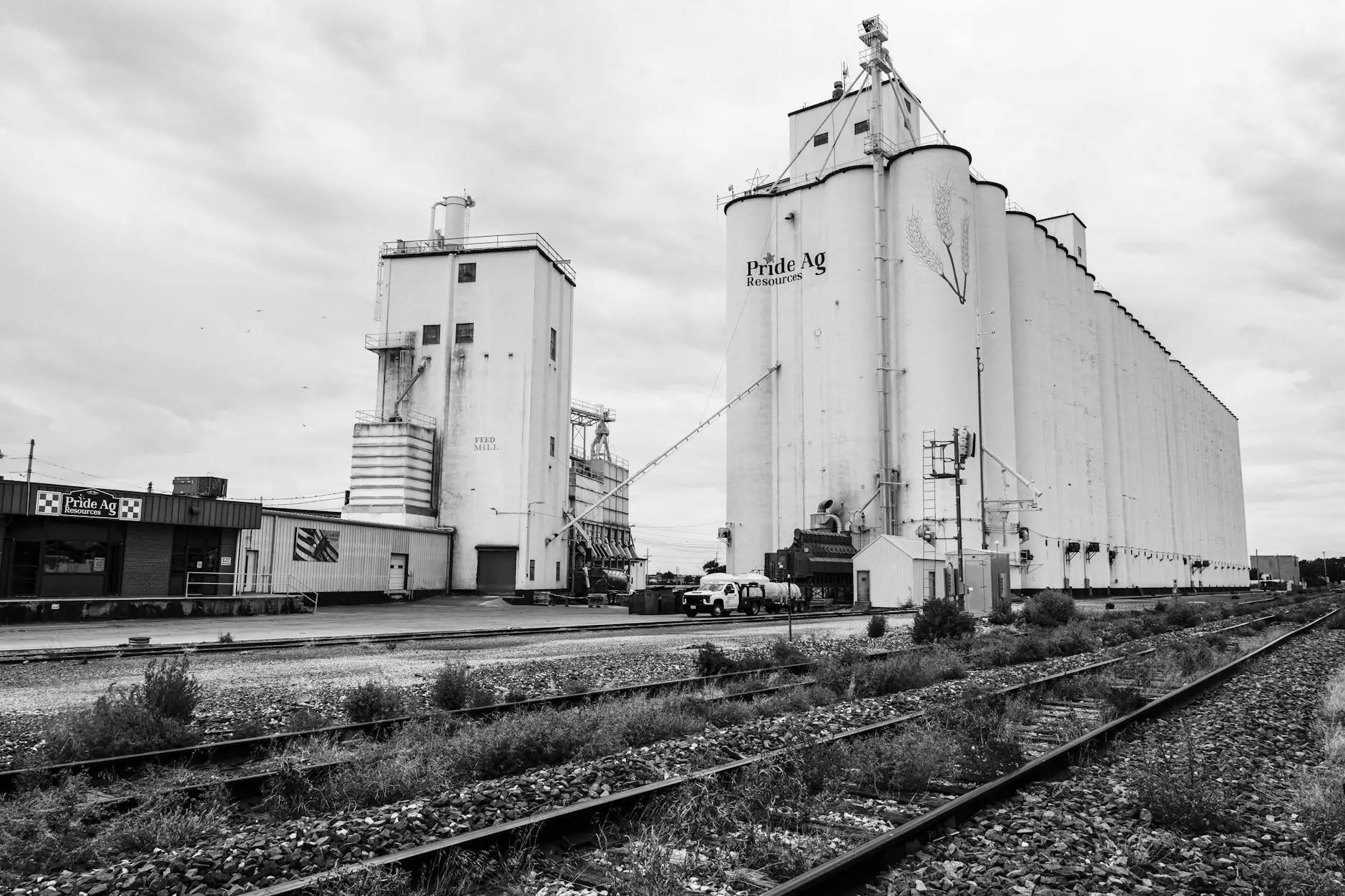Comprehensive Guide to Business Growth with Cement Silos in Modern Industries

In today's rapidly evolving industrial landscape, the integration of advanced storage solutions has become a critical factor for achieving operational efficiency and sustainable growth. Among these, the cement silo stands out as a cornerstone infrastructure component that has revolutionized the way businesses manage bulk materials. From construction giants to cutting-edge electronics and 3D printing industries, the strategic deployment of cement silos offers unparalleled advantages that drive productivity, enhance safety, and reduce costs.
What Is a Cement Silo and Why Is It Essential?
A cement silo is a large, vertical storage structure designed specifically to hold bulk quantities of cement and other powdered or granular materials. These silos are engineered with precision to ensure the safe, efficient, and contamination-free containment of cement, which is essential for construction projects and manufacturing processes requiring high-volume material handling.
Today, the versatility of cement silos extends beyond traditional construction, finding innovative applications in electronics manufacturing and 3D printing, where precise material management is crucial for maintaining quality and consistency. Here are some critical attributes of modern cement silos:
- Durability: Constructed from corrosion-resistant materials to withstand harsh environmental conditions.
- Scalability: Available in various capacities to suit small-scale projects and massive industrial operations.
- Automation: Integrated with modern control systems for seamless monitoring and management.
- Safety Features: Equipped with pressure relief valves, automatic discharge mechanisms, and safety ladders to protect personnel and equipment.
The Strategic Role of Cement Silos in Modern Business Operations
As industries evolve, the role of cement silos becomes increasingly strategic. They enable companies to optimize supply chains, minimize material wastage, streamline production schedules, and ensure consistency in product quality. Here's how:
1. Enhancing Supply Chain Efficiency
By providing a centralized, high-capacity storage system, cement silos allow businesses to stockpile raw materials in anticipation of production demands. This minimizes delays caused by material shortages and reduces the frequency of deliveries, thereby lowering logistics costs.
2. Improving Material Handling and Safety
Automated discharge systems attached to cement silos facilitate quick, clean transfer of materials directly to mixing stations, reducing manual labor and exposure to dust and other hazards. Enhanced safety measures also limit risk to personnel, ensuring compliance with health and safety regulations.
3. Cost-Effective Maintenance and Management
Modern cement silos are designed for easy maintenance, with features like inspection hatches and sensor-based monitoring. This prevents downtime and prolongs the lifespan of the infrastructure, translating into long-term cost savings for enterprises.
Innovative Applications: Cement Silos in Electronics and 3D Printing Industries
While traditional uses of cement silos are well-established in construction, innovative industries such as electronics and 3D printing are harnessing their benefits in novel ways.
Efficiency in Electronics Manufacturing
In electronics, particularly in PCB (Printed Circuit Board) manufacturing, materials like conductive powders and specialized resins require precise storage conditions to maintain their properties. Custom-designed cement silos with controlled environments are increasingly utilized to store such powders, ensuring consistent quality and reducing contamination risk.
Supporting 3D Printing Material Supply
In the 3D printing industry, especially for large-scale additive manufacturing, the supply of powders, polymers, and binders is critical. Cement silos equipped with temperature control, humidity regulation, and dust filtration systems provide a reliable means of storing bulk raw materials, facilitating uninterrupted production and high precision outcomes.
Key Features of Modern Cement Silos for Industry-Specific Needs
To maximize utility in diverse sectors, cement silos now incorporate features tailored to specific industry requirements:
- Modular Design: Allows customization and easy expansion as business grows.
- Dust Control Technologies: Minimize airborne particles, ensuring cleaner work environments and regulatory compliance.
- Integrated Monitoring Systems: Use sensors for real-time data on material levels, temperature, and humidity.
- Energy-Efficient Operation: Use of low-power motors and solar-powered options to reduce operational costs.
Choosing the Right Cement Silo for Your Business
Investing in a cement silo requires careful consideration of your business’s specific needs. Here are key factors to evaluate:
- Capacity: Determine the volume of materials to be stored and select a silo accordingly.
- Material Compatibility: Ensure the silo’s construction materials are compatible with your raw materials to avoid corrosion or contamination.
- Mobility: Decide between stationary or portable silos based on space constraints and project mobility requirements.
- Automation & Monitoring: Opt for silos with integrated control systems for efficiency and automation.
- Regulatory Compliance: Confirm that the silo design adheres to local safety and environmental standards.
Design and Manufacturing: The Role of Innovation and Technology
Leading polygonmach.com specializes in the engineering and manufacturing of cutting-edge cement silos tailored to diverse industry needs. Their expertise lies in incorporating the latest technological advancements such as:
- Automation Technology: Ensures minimal human intervention, allows remote monitoring, and simplifies operations.
- Modular Construction: Enables quick assembly, scalability, and easy maintenance.
- Eco-Friendly Materials: Use of sustainable materials and energy-saving systems.
- Custom Design Solutions: Tailored to specific industry standards, spatial constraints, and technical requirements.
Future Trends: How Cement Silos Are Evolving to Meet Industry Demands
The future of cement silos is characterized by increased integration with Industry 4.0 technologies, emphasizing automation, data analytics, and environmental sustainability. Emerging trends include:
- Smart Silos: Incorporation of IoT technology for real-time data collection and predictive maintenance.
- Green Building Practices: Use of recyclable and eco-friendly materials in silo construction.
- Enhanced Safety Protocols: Advanced safety systems with AI-based hazard detection.
- Global Standardization: Developing industry-wide standards for performance and safety to facilitate international trade.
Conclusion: Cement Silos as a Catalyst for Business Success
In conclusion, the strategic use of cement silos plays a pivotal role in transforming business operations across multiple industries. Their ability to offer scalable, safe, and efficient material handling solutions directly influences production quality, operational costs, and overall competitiveness.
As industries like electronics and 3D printing continue to innovate, the importance of customized, technologically advanced cement silos will only grow. By partnering with industry leaders such as polygonmach.com, companies can access state-of-the-art silo solutions that align with future technological trends and environmental standards, ensuring sustained growth and success in their respective markets.









